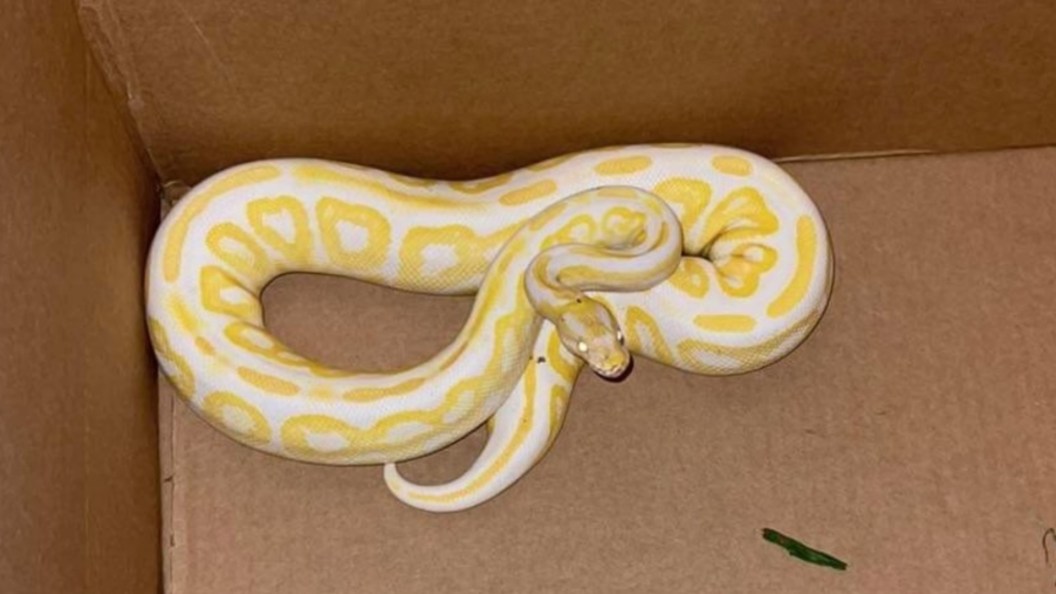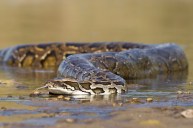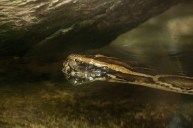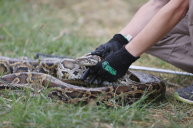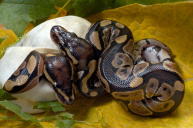The St. Augustine neighborhood in Florida has found itself with new neighbors: Some 25 ball pythons have been found and captured around the Prairie Lakes neighborhood since the beginning of July, as reported by First Coast News.
They have been found in all sorts of places around the area, from under the hood of a car to crossing the roads at night. Weirdly, this comes at the same time another Florida neighborhood, this time outside Fort Lauderdale, has been overrun with feral lionhead rabbits.
Ball pythons are not native to Florida. But they have not yet established the thriving populations that their relatives, the Burmese python—one of the top invasive species in Florida—have built.
We still don't have a clear answer on how more than two dozen ball pythons came to find freedom in the suburbs, we do know the slithery fellas are one of the most popular snake species to own as a pet. As such, the Florida Fish and Wildlife Conservation Commission (FWC) speculate that these snakes are likely pets that have either been released or have escaped their enclosures.
That's partly because the ball pythons that have been found in St. Augustine show some particularly unique and beautiful patterns on their skin, which Jacksonville Herpetological Society President Lissa O'Rourke shed some light on with First Coast News: "These ball pythons are very specific morphs of ball pythons, ones that would have been bred by somebody. Several of them were albinos and those are not made to live out in the environment. They're susceptible to the sun, they can't camouflage."
Sky Bennett, a vet tech involved in catching the snakes, shared that the captured snakes have appeared well-fed, contributing to the theory that the ball pythons were pets.
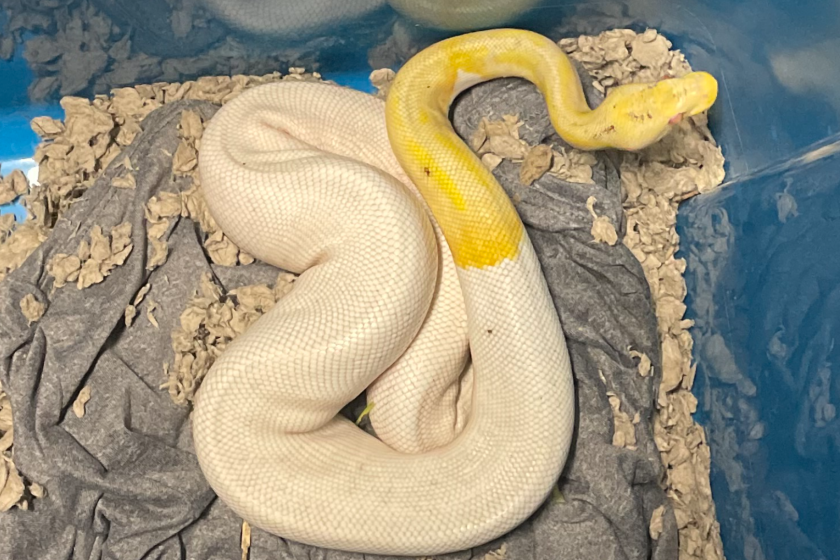
First Coast News
While snakes over-taking a neighborhood may sound like the beginning of a B-rated horror movie, but fear not: These slithery friends are not venomous and are in fact quite docile. Moreover, the snakes that have been found are reported to be unlikely to survive in the wild.
In fact, O'Rourke added that the ball pythons are not faring the best out in the wild: She said most of the albino ones they've captured from the nieghborhood some puncture wounds, probably attacked by cats or raccoons.
Though we don't know if these pythons were intentionally released or not, we do know that with rising temperatures we see snakes being more active and even escaping more frequently.
We're not saying the recent heat is what's causing these snakes to appear in such large quantities, but if you have a pet snake, maybe give a little extra vigilance to ensuring it is secure in its home in case it decides to go for a slither.
Many of the snakes have been captured by Vincent Meyers, who made his own snake wrangling device out of a paint roller. Once captured, the snakes are handed over to Sky Bennett, vet tech, and O'Rourke in order to treat and rehabilitate the reptiles if needed.
Northeast Florida is too cold for these snakes to survive on their own in the wild, and because of the low likelihood of survival Isaac Scott with CritterPro Inc. says "It is animal cruelty to release these animals into the wild . . . You're basically giving the animal a death sentence."
Efforts are being made to help the snakes get adopted, and hundreds of messages have been received regarding adopting the captured creatures.
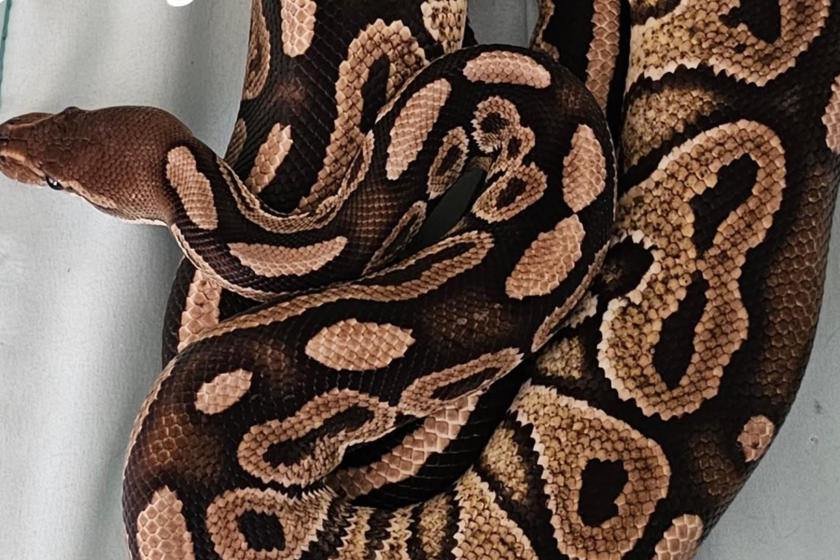
First Coast News
Regardless of where they're coming from, the FWC says if you have a non-native species that you have either spotted or already own and can no longer care for, it should not be released into the public. The FWC's Exotic Pet Amnesty Program will take them with no penalties or fees and get them rehomed in an appropriate location.
The FWC also urges anyone who comes across a non-native species to note it's location, get photos if possible, and report it to the Invasive Species Hotline at 888-Ive-Got1 (483-4681), through the website at IveGot1.org, or by using the free IvetGot1 app.
READ MORE: Burmese Python Captured Mid-Birth, Had Record 111 Eggs Already in Nest
